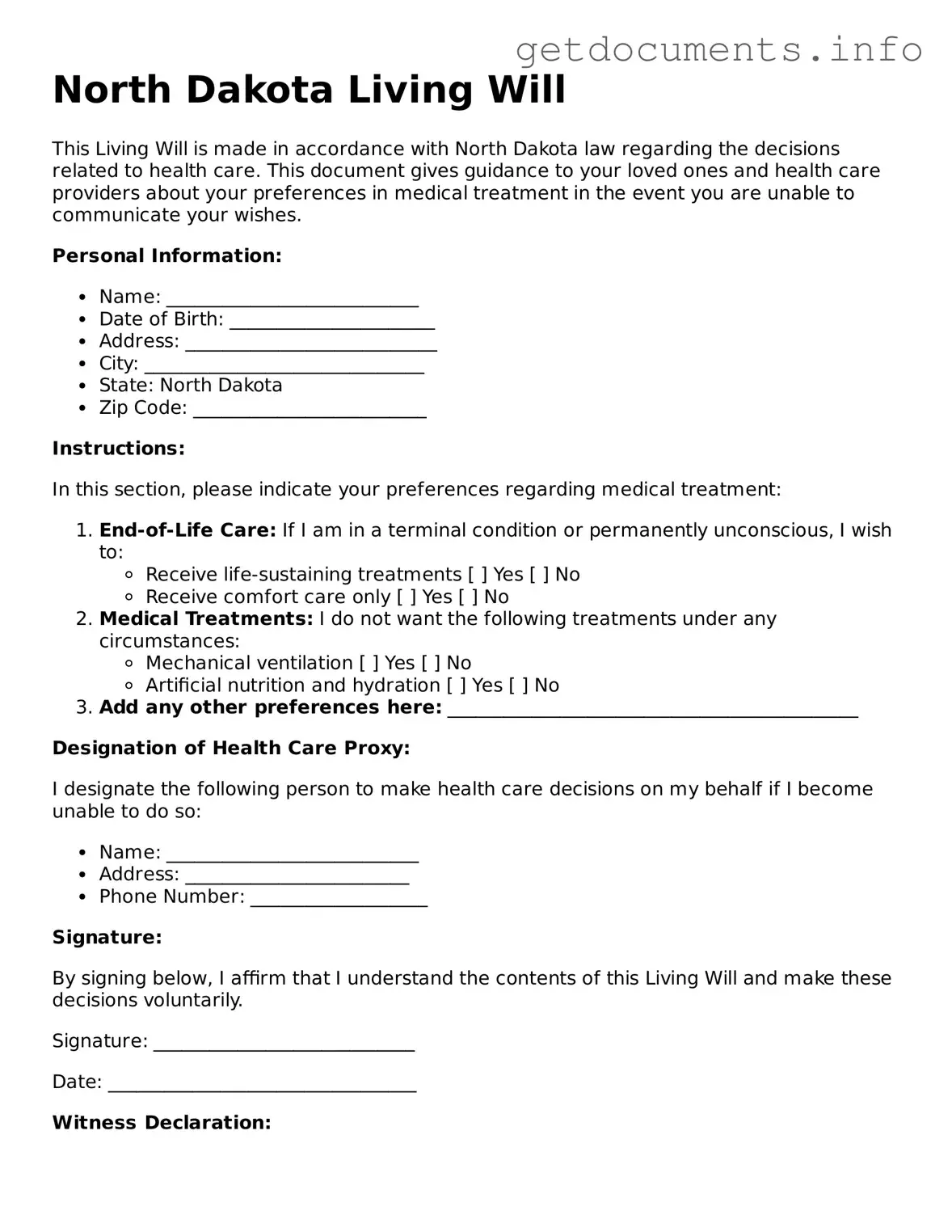Free Living Will Template for North Dakota
A North Dakota Living Will form is a legal document that allows individuals to outline their preferences for medical treatment in the event they become unable to communicate their wishes. This important form ensures that healthcare providers and loved ones understand your desires regarding end-of-life care. Take control of your healthcare decisions by filling out the Living Will form today by clicking the button below.
Access Living Will Editor

Free Living Will Template for North Dakota
Access Living Will Editor
Got places to be? Complete the form fast
Fill out Living Will online and avoid printing or scanning.
Access Living Will Editor
or
⇩ PDF File
